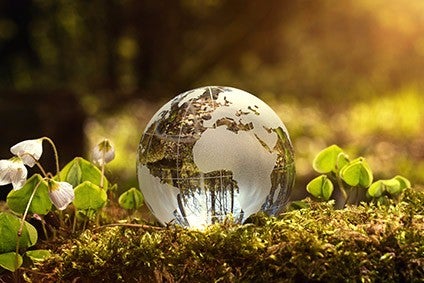
Switzerland-based food heavyweight Nestlé has set a target to achieve zero net greenhouse gas emissions in line with the most-ambitious aim of the Paris Agreement.
The Zurich-listed owner of the KitKat and Maggi noodles brands seeks to meet the objective by 2050 and said it will sign the ‘Business Ambition for 1.5°C’ pledge ahead of the UN Secretary-General’s Climate Action Summit this month.

Discover B2B Marketing That Performs
Combine business intelligence and editorial excellence to reach engaged professionals across 36 leading media platforms.
“Over the past four years, Nestlé has aligned its objectives with science-based targets to keep the temperature increase below 2°C,” the company said in a statement today (12 September). “Over the next two years, it will lay out a time-bound plan including interim targets consistent with the 1.5°C path.”
Key components of the plan include: “Speeding up the transformation of its products in line with consumer trends and choices; scaling up initiatives in agriculture to absorb more carbon; and using 100% renewable electricity.” It plans to monitor progress annually.
Mark Schneider, Nestlé’s chief executive, said: “Climate change is one of the biggest threats we face as a society. It is also one of the greatest risks to the future of our business. We are running out of time to avoid the worst effects of global warming.
“That is why we are setting a bolder ambition to reach a net-zero future. Deploying Nestlé’s global resources and industry know-how, we know we can make a difference at significant scale.”

US Tariffs are shifting - will you react or anticipate?
Don’t let policy changes catch you off guard. Stay proactive with real-time data and expert analysis.
By GlobalDataNestlé said it will launch more products that have a better environmental footprint and contribute to a balanced diet, including more plant-based food and beverage options. It will also reformulate products to incorporate more climate-friendly ingredients.
On the agricultural and environmental front, the company will work with farmers to restore land and limit greenhouse gas emissions, along with improving management of its dairy supply chain. Nestlé said it will also step up efforts to protect forests by replanting trees and enhancing biodiversity.
A third of Nestlé’s 143 factories are already using 100% renewable electricity, it said, and the company will continue to increase the use of energy from renewable sources.
Having supportive legislation in place could “help to reduce barriers to expanding renewable energy markets, incentivise innovation in the agriculture and forestry sectors to capture more carbon, and help to establish carbon pricing,” Nestlé added.
“We will need our suppliers to embark on this journey with us,” said Magdi Batato, executive vice president and head of operations at Nestlé. “The task is huge but we are determined to make it happen.”





